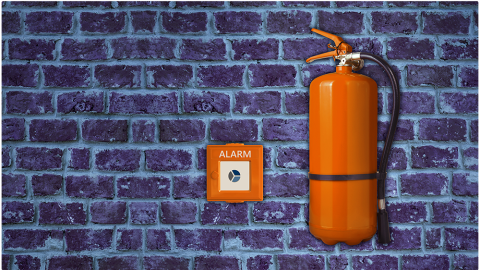
Occupational Safety or Workplace Safety?
What’s the difference between these terms?
What’s the difference between these terms?

We offer online training on occupational safety. Or is it workplace safety?
Nowadays, the terms occupational safety and workplace safety are often used interchangeably. But there is actually a difference.
The Occupational Safety Act (in German short: ArbSchG) defines the necessary measures to:
In short: The Occupational Safety Act covers workplace safety (preventing accidents) and health protection (preventing long-term health risks). So, occupational safety = workplace safety + health protection.
There is also the Workplace Safety Act (in German short: ASiG), which regulates which "workplace safety professionals" (such as occupational physicians or safety officers) a company needs to properly implement and monitor occupational safety measures.
So, workplace safety professionals oversee and ensure the implementation of occupational safety in companies. But since occupational safety includes both workplace safety and health protection, the distinction remains important.
Strictly speaking, employee training should be called an "occupational safety training" rather than a "workplace safety training." If it were the latter, it would either be for safety professionals or leave out health protection altogether. Welcome to the world of German terminology!
Occupational safety is concerned with ensuring safety and health in the workplace- whether you are sitting at a desk in an office, operating a production machine, working on a construction site, or commuting to work.
Even when working from home, every company registered in an EU member state is legally required to ensure the safety and health of its employees. And here’s where terminology gets interesting again: This obligation only applies to “true home office” - meaning if you are not provided with an office workplace at all.
However, what most people have been doing since COVID-19 is legally classified as mobile work. This means you have a designated workplace at your company but are also allowed to work from another location - such as a hotel, a mountain lodge, or your home. In this case, your employer is only responsible for occupational safety at your designated workplace, not at any other location. Makes sense, right?
In everyday language, though, no one says, "I'm working remotely from home today." Instead, people simply say, "I'm working from home." While these phrases might seem identical in casual conversation, they carry significant legal differences.
On the other hand, when it comes to occupational safety vs. workplace safety, the distinction is probably less critical. What truly matters is the content of the training- not what you call it.
Get a free demo account now and let's talk about your needs in a web meeting. We'll show you how to successfully train your employees with our online training program.